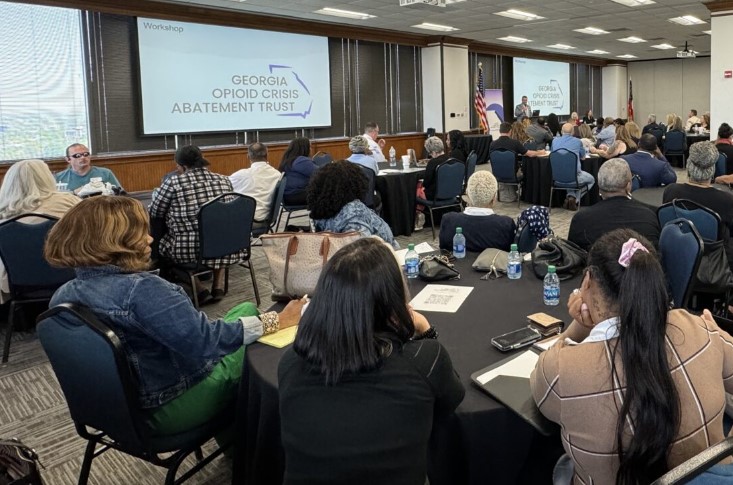Georgia embarks on a monumental effort to combat the opioid epidemic with a substantial $638 million settlement fund. This financial boost aims to support various initiatives and programs dedicated to tackling the crisis that has gripped the state.
The Grant Program Unveiled
The state of Georgia has initiated a grant program to allocate the opioid settlement funds. A significant portion, amounting to $638 million, is set to flow into the state’s coffers, with the majority earmarked for distribution through this newly established grant process. The program’s launch was marked by a series of workshops, the first of which saw a considerable turnout in downtown Atlanta, indicating the high stakes and community interest in the effective use of these funds.
The grant program is not just about distributing money; it’s about carefully crafting a response to a complex crisis. The state’s approach is methodical, aiming to ensure that even 18 years down the line, the impact of these funds will be evident in the lives saved and the communities restored.

A Closer Look at the Crisis
Georgia’s struggle with opioid addiction is not unique, but the numbers are staggering. Over a decade, opioid-related overdose deaths have skyrocketed by 207%. The settlement funds represent a beacon of hope, a chance to reverse this harrowing trend and provide relief to those caught in the throes of addiction.
The crisis has evolved, with new threats like fentanyl-laced marijuana and the tranquilizer xylazine becoming part of an ever-changing illegal drug market. The state’s response, therefore, must be dynamic and multifaceted, addressing not only the immediate needs of those affected but also the underlying factors that fuel this epidemic.
Strategies for Change
The grant program is structured to support a wide array of initiatives, from regional projects with a local focus to broader, state-level interventions. The potential uses for the funds are diverse, encompassing everything from prevention and treatment to recovery support services. This strategic allocation of resources is pivotal in creating a continuum of care that can effectively combat the opioid crisis in Georgia.
The settlement is part of a larger, multistate agreement, highlighting the nationwide recognition of the opioid epidemic as a public health emergency. Georgia’s share of the settlement is a testament to the severity of the issue within the state and the commitment to finding long-term solutions.

Comments